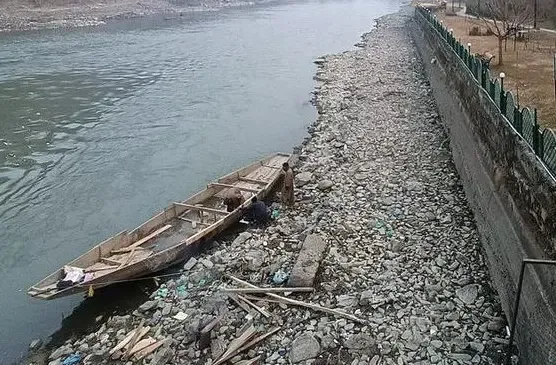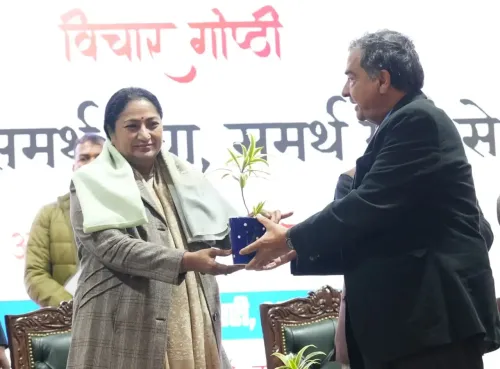Kashmir Faces Severe Drought Threat Following Extended Dry Season

Synopsis
Key Takeaways
- Unprecedented dry spell threatens Kashmir's water supply.
- Only one significant snowfall this winter.
- Historical reliance on springs for drinking water.
- Environmental concerns rise with high temperatures.
- Contingency plans being discussed by officials.
Srinagar, Feb 17 (NationPress) With an unprecedented dry season enveloping Kashmir this winter, residents are increasingly alarmed by the potential for drought looming over them. Only one significant snowfall has graced the Valley this winter.
The pressing concern is: -- Is Kashmir on the brink of a drought by 2025?
A heavy snowfall on December 28, 2024, had sparked hopes for a prosperous summer. However, those hopes were crushed with a dry January and a still-dry February. Local elders express that they cannot recall such a disaster unfolding.
“In my lifetime, I have never witnessed our village's spring with such a low water level. The small outlets of water from this spring have dried up, leaving only one outlet operational,” shared Fatima Bibi, 97, a resident of Haripora village in Ganderbal district.
The troubling news is that many springs in this district are nearing depletion. The renowned Achabal spring in Anantnag district, which Empress Noor Jahan embellished with a large garden in 1620, has gone dry, affecting the drinking water supplies for over 15 villages that relied on it.
Thousands of kanals of paddy fields rely on the Achabal Spring for irrigation. Water discharge at Verinag spring in Anantnag district is significantly low. Verinag Spring feeds the Jhelum River, which traverses through the Valley from Anantnag to Baramulla and eventually meets the Indus River at Mithankot in Pakistan. Before merging with the Indus, the Jhelum and Ravi converge with the Chenab River, while the Beas joins the Sutlej River, resulting in the formation of the Panjnad River.
All agriculture and horticulture in Anantnag, Srinagar, parts of Ganderbal, Bandipora, and Baramulla districts rely heavily on the Jhelum River.
The 'Khelo India Gulmarg 2025' games, set to occur in the ski resort of Gulmarg, have been deferred due to insufficient snow for winter sports. Other tourist sites like Sonamarg and Pahalgam are also suffering from the lack of snowfall this season.
Villages that have enjoyed perennial water sources like springs for centuries are now receiving drinking water via tanks provided by the local Jal Shakti department. In some Ganderbal villages, residents are currently dependent on water tanks for their drinking needs. The most alarming news for these villagers is that many perennial springs have tested unsafe for consumption due to bacterial contamination, which can lead to various diseases, including jaundice.
The Sindh stream, which flows through the heart of Ganderbal district from the Zojila Pass to the Jhelum River at Shadipora, is also showing signs of drying up. Historically, floods have devastated Kashmir, but the threat of drought now looms large. If the rain gods do not intervene, the Valley known for its springs and rivers could soon transform into a vast, arid landscape.
Another concerning aspect is that the perennial water reserves in the mountains are melting due to unusually high daytime temperatures. Last week, temperatures soared nearly 8 degrees Celsius above average.
“This is the real danger we face. Without replenishment during winter, the abnormally high temperatures are causing early melting of perennial water reserves and glaciers. Unless we receive significant rainfall in the upcoming months, the outlook is grim,” warned Mansha Nisar, an environmental scientist.
In past instances of floods and drought, the Valley's residents would gather for prayers, seeking divine mercy. They would visit the shrines of saints, praying for relief.
“Our faith system is also deteriorating. We have become overly materialistic, forgetting that even with vast wealth, one can still perish for a drop of water,” lamented Ghulam Mohammad Rather, 54, a farmer from north Kashmir.
Chief Minister Omar Abdullah has stated that official meetings are underway to devise contingency plans. However, such measures may prove futile if Nature decides to retaliate against Kashmir for disrupting its delicate ecological balance.










